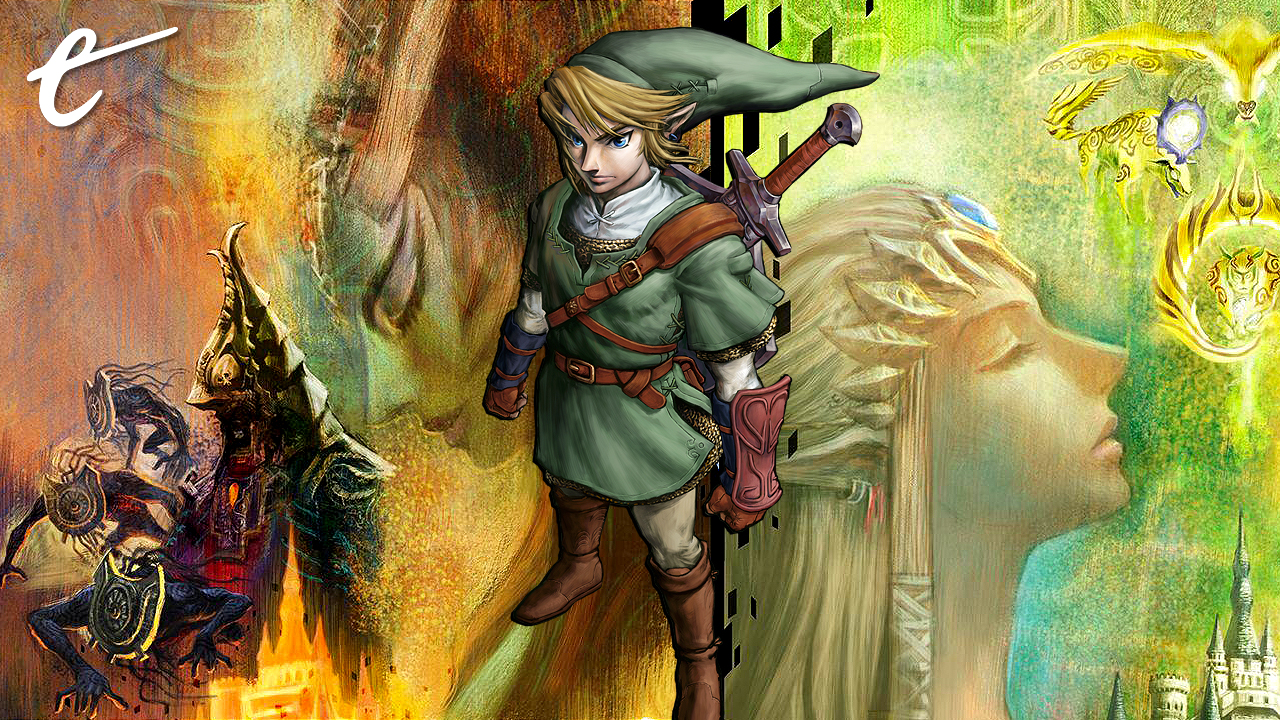
[adinserter block=”1″]
The Legend of Zelda has been my favorite video game franchise for pretty much my whole life. With Tears of the Kingdom finally upon us, I decided to embark on a journey over the past year to replay as many Zelda games as I could and see if this crash course through gaming history could help me glean any new insight into a series that has meant so much to me. I’ll be relaying my thoughts through a set of short features highlighting one thing that stood out to me from each game.
Today’s game – 2006’s The Legend of Zelda: Twilight Princess.
The Legend of Zelda: Twilight Princess feels like the most divisive game in the Zelda franchise, and I know exactly which side of that divide I fall on. 2006’s generation-straddling adventure eschewed the storybook presentation of Wind Waker in favor of a darker and more realistic depiction of Hyrule that felt like a proper follow-up to Ocarina of Time. But while it has its share of fans, including many who hold it in the upper echelon of the series, Twilight Princess falls flat for me for a variety of reasons.
That said, the entire slice of the adventure set around the Snowpeak Ruins and the relationship between a pair of wonderful creatures named Yeta and Yeto is not only a bright spot in a hopeless game, but a standout example of how Zelda dungeons can weave tone, story, and gameplay together into an incredible tapestry.
Going back for a second, I totally understand why Twilight Princess elicits such strong responses from both its fans and its detractors. While the colorful seas of Wind Waker speak to me more clearly, there’s no denying that Twilight Princess’s dark tale of dual worlds arrived at the right time, both in the evolution of video games and also for a part of its audience as well.
The GameCube, Xbox, and PlayStation 2 generation felt defined by its more mature games, including the Grand Theft Auto trilogy, Metal Gear Solid 2 and 3, Shadow of the Colossus, Halo 1 and 2, Resident Evil 4, Silent Hill 2, and the first two God of War games. In that respect, it makes sense that Zelda would lean into this direction, while still adhering to the adventure formula that had continually been refined since its initial debut on the NES.
With that said, I’ve found that it’s often the case that many of Twilight Princess’s biggest fans are ones who came to it right in the midst of their formative years or even arrived with it being their first major Zelda adventure. Through that lens, I can see how it would leave a seismic impression.
Sadly, that’s not how I feel. I appreciate Midna as a character and really dig her arc. But the Twilight Realm just doesn’t work for me on a mechanical level, and the rigid linearity of the whole quest felt confining after the open seas of Wind Waker. It also doesn’t help that this game was released right in the thick of the “brown era” of AAA games, where everything from Resident Evil 4 and Gears of War to Killzone used a grittier color palette in order to deliver what they perceived was more realism. I wasn’t huge on this visual trend then, and I’ve only grown to like it less with time.

But while Twilight Princess ranks fairly low on my personal list of Zelda games, it’s not without its standout moments. Case in point – nestled in the back half of the game, Snowpeak Ruins is the fifth major dungeon Link finds throughout the game. While the previous ones consisted of ancient temples, mines, and prisons, Snowpeak presents itself in a much different form than what we’re used to from a Zelda dungeon – a mansion that feels truly lived in thanks to the love of a yeti couple named Yeto and Yeta.
Yeta holds one of the Mirror Shards that act as a MacGuffin for this section of the game. However, she’s feeling under the weather and can’t quite remember where she put the key to her bedroom, so it’s up to you to search the mansion to help jog her memory and find ways of making her feel better.
There’s so much that I love about Snowpeak Ruins, including just how unique it feels among the pantheon of Zelda dungeons. Slowly learning the layout of the mansion as different paths fold in on one another via unlocked doors and secret passages sometimes feels more like Resident Evil than Zelda, and I mean that in a good way. I love finding new ingredients for Yeto to add to the soup he’s making for Yeta, which is such a simple, effective means of storytelling.
Don’t get me wrong — I dig dungeons where Link has to manipulate the flow of waterways, gravity, and even time itself. But there’s something so basic and primal about cooking comfort food in hopes of bringing just a bit of relief for someone you love.

This unique and powerful theme would be enough for Snowpeak to stand out in Twilight Princess, but the whole thing elevates once you come across this dungeon’s item — the Ball and Chain. This slow, heavy, and impossibly powerful item acts as both a tool to solve puzzles and break through walls of ice, as well as a weapon to shatter anything that comes in range of your swing. It’s an absolute blast to use and delivers a kind of adrenaline rush that only the best Zelda items can create.
Sadly, it suffers from one of the main problems of Twilight Princess, in that you find very little use for these items outside of their respective dungeons. Same goes for the rad Spinner, which only pops up as useful a handful of times after completing the Arbiter’s Grounds. Side note, maybe I’m reading too much into it, but having the Ball and Chain introduced in the middle of a beautiful and touching story of a couple in love is either a smart goof or a complete coincidence.
Snowpeak Ruins stood out to me as a shining bright spot in an otherwise dull replay of Twilight Princess HD on Wii U. Also, playing this version in 2023 meant that I was consistently disappointed when exploring off the beaten path led me to a treasure chest that inevitably held a Miiverse Stamp, an item whose only use was for a service that has been dead for the past six years. It’s like cleaning out a cabinet at home and stumbling across a Circuit City gift card, but then having that same thing happen dozens of times over the course of 30 hours.
Check out other entries in this ongoing Zelda series below.
[adinserter block=”1″]
Credit : Source Post